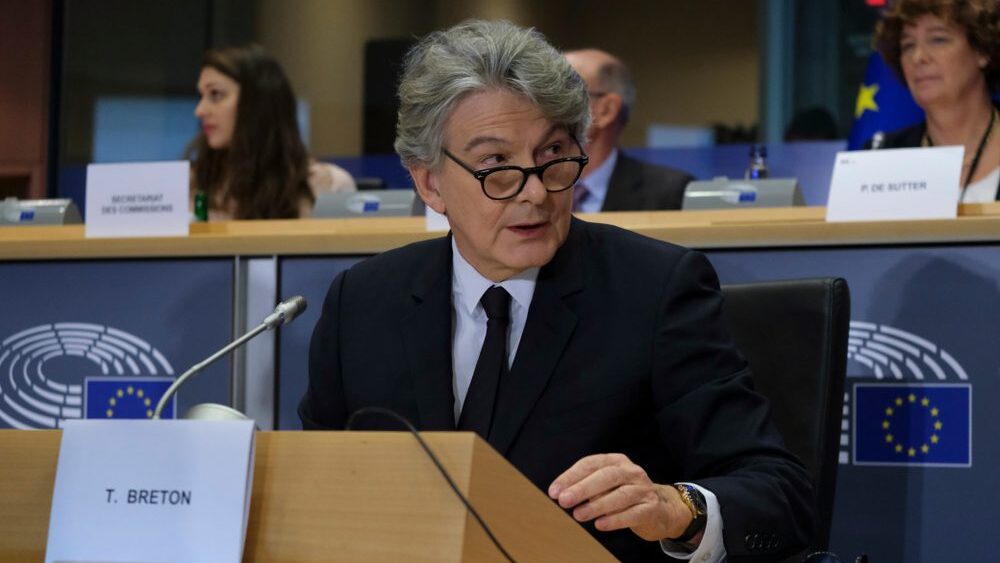
Thierry Breton
Photo: Alexandros Michailidis / Shutterstock.com
The bare bones of the EU’s legislative agenda from 2024 was given on Wednesday, September 13th, as Commission President Ursula von der Leyen gave her fifth and potentially final State of the European Union address during an assembly at the European Parliament in Strasbourg.
While the 64-year-old Christian Democrat hit the expected notes, defending her administration’s controversial Green New Deal and the Ukrainian war, perhaps the most interesting aspect of von der Leyen’s oration was confirmation that the EU would accelerate plans for a common defensive union, as she pledged to create an integrated military-industrial base over the next legislative term.
Eurocrats are worried about the potential of an isolationist America after 2024 and the risk of a second Trump administration, as French Commissioner and Macron loyalist Thierry Breton took the lead in outlining what a common EU military-industrial complex would look like in practice.
Rumoured to want to replace von der Leyen after 2024, Breton published a social media post shortly after his boss’s speech in which he announced that the “return of high-intensity conflict” to Europe underlined the need for a unified EU military strategy going forward. In short, Eurocrats wish to put flesh on the bones of an evolving European superstate as geopolitical uncertainty soars.
Feeling slightly left out in the cold by NATO’s and individual member states’ proactive military response to the Ukrainian crisis, eurofederalists seek to use the crisis to achieve a long-term objective of European military integration, as the bloc begins purchasing armaments as a single unit for the first time.
This federalising attitude to European defence is likely to conflict with a growing sense of anti-war populism within the Parliament. In addition, member states such as Poland, who prefer handing their own defensive matters, benefit from bilateral partnerships with NATO and the United States.
Europe already has integrated forces, including both EU Battlegroups for rapid response emergencies and the 1,000-strong Eurocorps force based out of Strasbourg. In March, the European Commission quietly announced the integration of maritime patrols.
Simultaneous with von der Leyen’s remarks, the European Council, under the current Spanish Presidency, hosted a conference in Brussels this week analysing the rollout of PESCO, a flagship defence initiative meant to be a precursor to wider integration.
A major economic and political hurdle for any European defensive union the next five years will be EU-Chinese relations, as many within the bloc, most notably France, lobby for an independent position and reject American pressure to decouple from Beijing. Trying to secure its own raw materials reserve, the European Parliament gave the green light to the Critical Raw Materials Act to protect the security of supply as Western geopolitical prestige collapses in the Global South.
